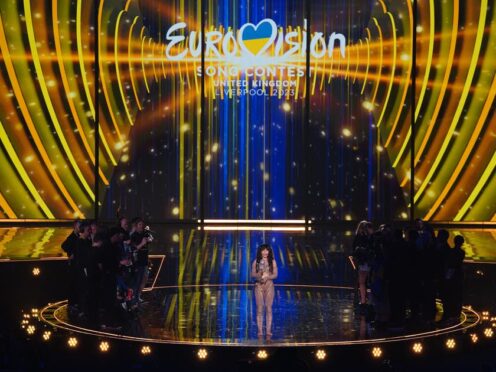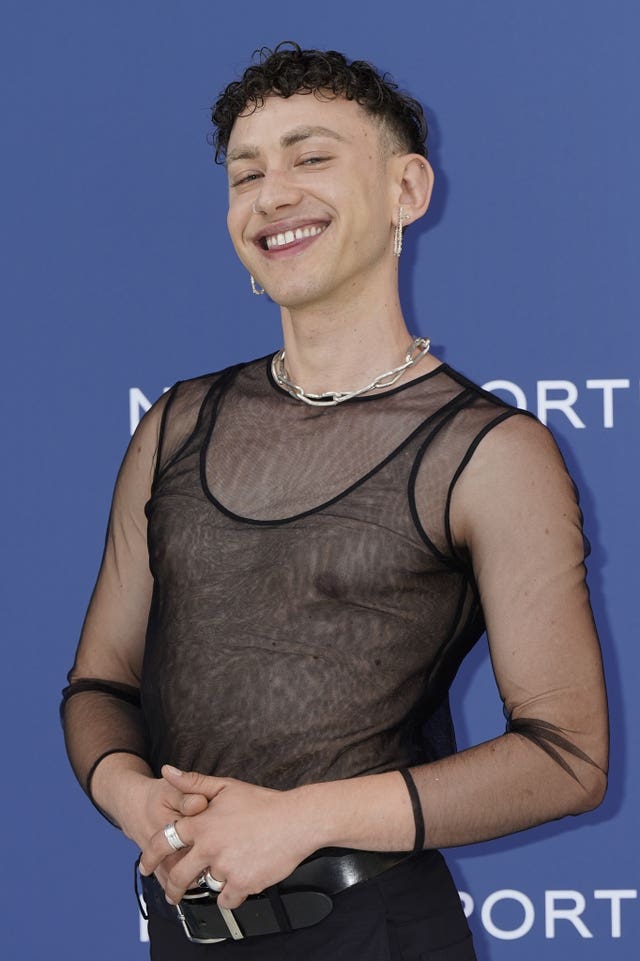
Organisers of the Eurovision Song Contest have said excluding the Israeli broadcaster Kan from the competition would have been a “political decision”.
There have been calls for fans and participants to boycott the music competition taking place in Malmo, Sweden, next week after it was confirmed Israel would be competing amid the ongoing conflict in the Gaza strip.
Speaking on Sunday Morning With Trevor Phillips, Jean Philip De Tender, the deputy director general of the European Broadcasting Union (EBU) which organises Eurovision, said it based its decision to include Kan on the competition rules in place.
'Excluding Kan [Israeli Public Broadcasting Corporation] from Eurovision would have been a political decision'.
Organiser @jeanphilip says the contest is about values, and is "fully in line" with major sporting events. #TrevorPhillips 🔗 https://t.co/fhIHlpTGAF
📺 Sky 501 pic.twitter.com/CQoUOhBAYD
— Sky News (@SkyNews) May 5, 2024
He said: “I fully agree it is a family event and the great thing about this music competition is that it’s all about values.
“It’s about uniting onstage all of these young talents, these participants, and they do great. It’s about diversity and inclusion.
“But there are competition rules and you need to follow the competition rules and take decisions based on these competition rules.
“If you were to exclude Kan outside of these competition rules, that would have been a political decision, as such, which we cannot take.”
He also noted the EBU, an apolitical member organisation, is “in line” with other international federations including sports bodies who are allowing Israel to participate in events.
Following the outbreak of the Israel-Hamas war, Queers for Palestine circulated a letter signed by actors Indya Moore, Brigette Lundy-Paine and Maxine Peake calling for UK entrant Olly Alexander to stop participating.
In March, Alexander along with Irish hopeful Bambie Thug and other Eurovision artists released a joint statement, backing “an immediate and lasting ceasefire” but refusing to boycott the event.
That same month, Israel unveiled its new entry song as Hurricane, performed by singer Eden Golan.
Her original track, October Rain, had caused controversy as the lyrics were thought to reference the Hamas attacks of October 7 before being changed following the backlash.

Discussing the backlash, De Tender said: “We do understand the concerns and the deeply held views that many people have around the war in the Middle East and I think nobody can remain untouched by the profound suffering of everybody involved in that war.
“The Eurovision Song Contest is a music event which is organised and co-produced by 37 public broadcasters, so it’s not a competition between nations or governments.
“We do understand that there was some concern around Israel participating, but when our governing bodies, because we’re a member led organisation, reviewed the participation list of this year, they concluded that Kan, which is the Israeli public broadcaster, met all of the obligations compared to the competing rules.”
In 2022, EBU announced that Russia would no longer be participating in Eurovision following the invasion of Ukraine.
A statement at the time said the EBU’s executive board had made the decision following a recommendation by the Eurovision governing body, known as the reference group, based on “the rules of the event and the values of the EBU”.
On Sunday, De Tender said the situation between Russia and Israel was “different” as in Russia’s case there was a “broad consensus within the membership of the EBU that they could not participate”.
He added that the three Russian members of the EBU had already been “excluded” from the EBU membership in the weeks after the war broke out due to breaching “member obligations”.
The 37 Eurovision entries are set to perform across two semi-finals next week on Tuesday and Thursday in a bid to compete for a place in the grand final on Saturday.
Alexander is set to perform his dance-infused track Dizzy on behalf of the UK during the Tuesday semi-final, but he is already through to the final along with the other members of the “big five” – France, Germany, Italy and Spain – as well as last year’s winner Sweden, who get to go through automatically.
De Tender said the preparations are going “very well” as they have been planning the music spectacle in Sweden for the past year after Loreen won the competition with her hit song Tattoo.

Enjoy the convenience of having The Sunday Post delivered as a digital ePaper straight to your smartphone, tablet or computer.
Subscribe for only £5.49 a month and enjoy all the benefits of the printed paper as a digital replica.
Subscribe